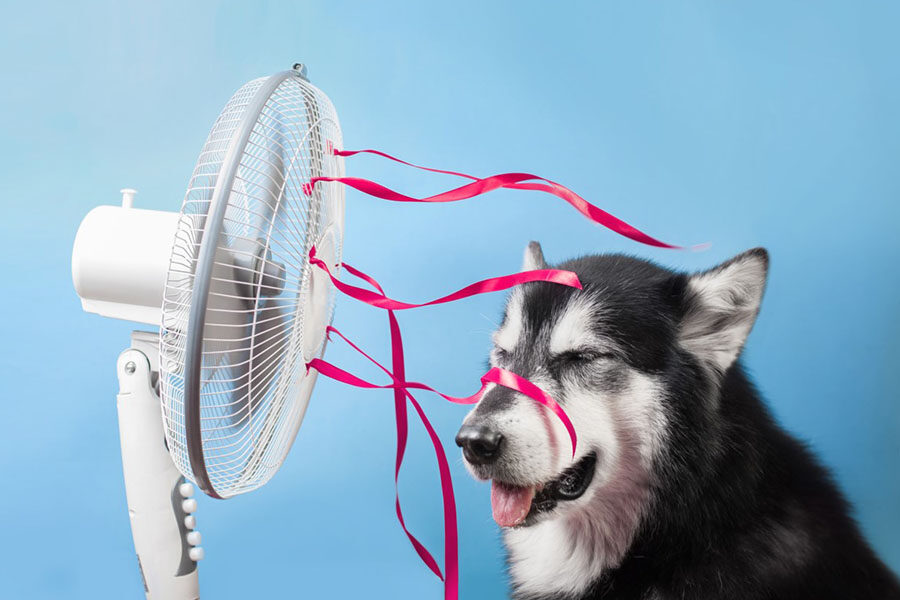Summer heat? Winter blues? Yes, even your pet is affected by these seasonal changes. Know the changes in your pet’s health and ways to cope with them!
The scorching summer heat, freezing winters, and dripping rains equally affect your pup, the way they affect you. Just like you feel sluggish and lethargic at times with the change in weather, so does your pet. Since your pooch cannot express this, as a pet parent you have to be cognizant and recognize these changes in your pup’s mood and overall lifestyle.
Being mindful of some common changes such as appetite and skin-related changes can help you make informed choices for your pet’s health. Even a regular visit to a veterinarian can make you better prepared to make the most of another wonderful season with your favourite!
So, let’s dive deep into how weather changes affect your pets?

Increase in Shedding
Owing to the rise in temperature and heat, most shedding in dogs occurs during summer. It is quite common to observe more stray hair and hairballs around your home. You can continue with the normal grooming practices but try to brush your pet’s coat more often in summer to gather the fur before it sheds over your floors.
Brushing also helps in removing dander and bacteria from your pet’s undercoat which alleviates itching, excess scratching and makes your pet comfortable. If you’re pressed for time to do regular grooming of your pet, you can definitely consider opting for a top-notch grooming service for your pet.
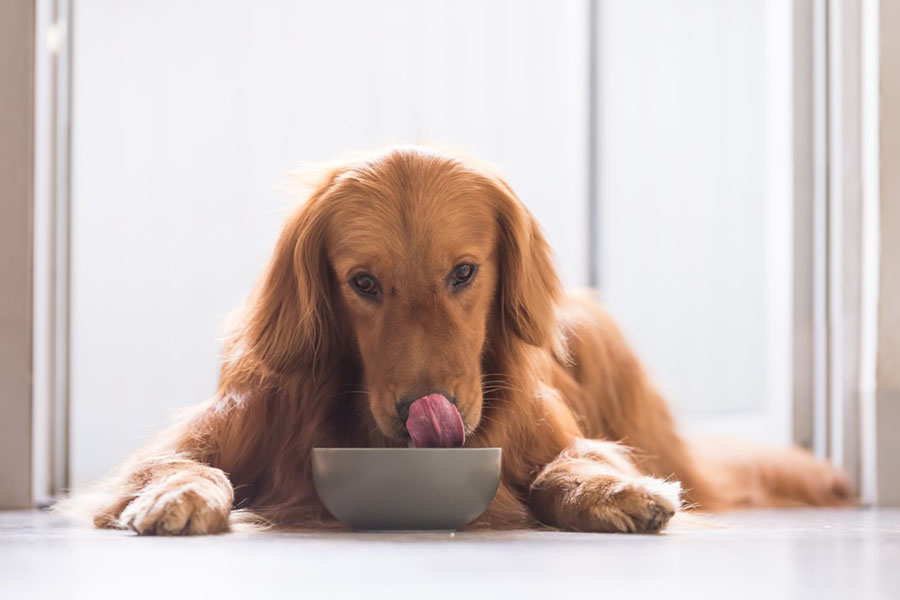
Change in Appetite
Seasonal change has a significant impact on your dog’s eating habits. In winter, you may definitely notice an increase in your pup’s appetite. It is because dogs need extra fat to tackle the cold and keep themselves warm. It is recommended to feed your pet with food rich in vitamins, fibres, proteins and minerals.
On the contrary, your happy-go-lucky pooch may eat less food during summers because of minimal physical activity. Yoghurt and fruits can be a good addition to your pet’s diet during summer to reduce body heath.
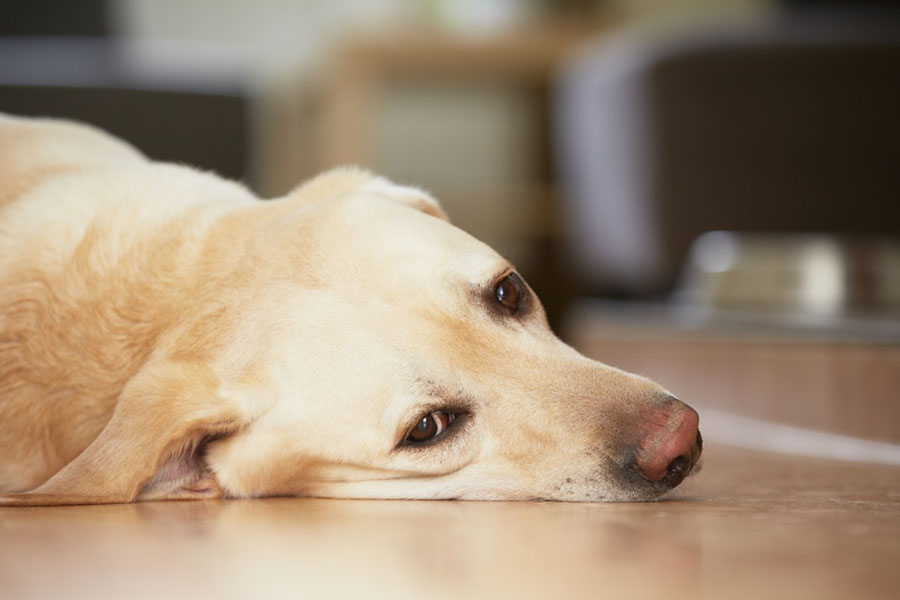
High Anxiety & Depression
Pups suffer from depression and stress as much as we humans do. If your pet spends less time outdoors, it is vulnerable to depression. Such situations usually arise in monsoons when the weather is gloomy. Signs of depression in pets include aggressive behaviour like growling, low-rage barking, and lethargy. Your pup can even experience hair loss and changes in eating and sleeping patterns.
You can alleviate stress and anxiety in your pets by taking them to open spaces. Nature enables your pet to breathe in the fresh air and express their hidden emotions.
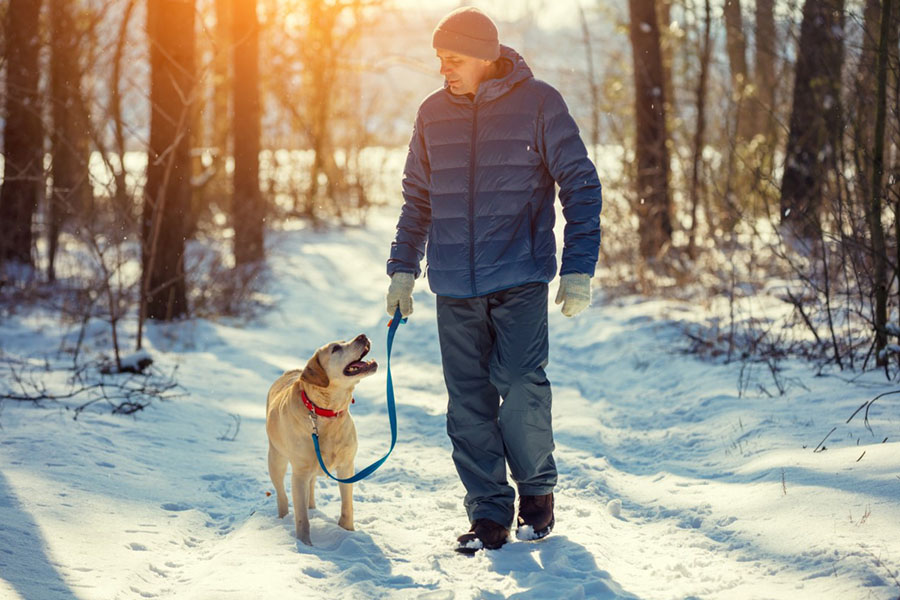
Joint Aches
Cold temperatures cause the muscles to stiffen. Increased joint pain is one of the common phenomena in dogs during winters. The only way to tackle this issue is by improving your dog’s mobility and taking it for a walk. Walking, running and exercising your pet will facilitate the blood flow and reduce the stiffness in joints.
Although your tail-wagger might feel stiff at first, walking will only warm-up and strengthen its muscles. Seek out a pet walking service that can daily walk and play your pet around the block and keep it fit and fine.
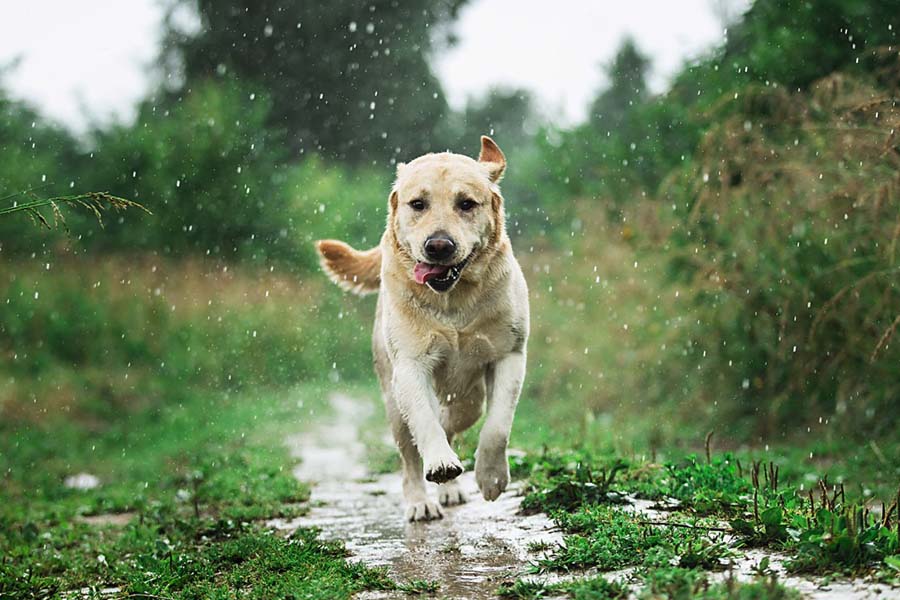
Weak Immunity
Your pooch should not be exposed to rains and cold weather for long. It can weaken your dog’s immunity. Cold monsoon can also affect its respiratory tract and lead to pneumonia. To prevent such extreme illness, give your pet a nutrient-rich balanced diet and adhere to some regular hygiene practices such as keeping it away from stagnant water or puddles, wiping it with a towel as soon as he comes indoors from the rain.
Knowing about these seasonal changes is pivotal for your pooch’s wellbeing. Whenever there is a change in season, you can recognize your pet’s changing lifestyle and take steps to help them cope with these physical and emotional conditions.
If you need more information or are still figuring out ways to ace the seasonal change for your pets, get in touch with us right away!

